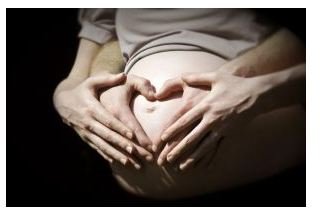The Risks of In Vitro Fertilization
In Vitro Fertilization Procedure
The in vitro fertilization procedure artificially implants viable embryos with the goal of a successful pregnancy. It may be a good choice for a woman with damaged fallopian tubes or endometrosis. It may also offer a viable alternative for the cases of undiagnosed infertility. Despite its promise, in vitro fertilization carries risks.
During the Procedure
Eggs from the woman must be extracted and then, embryos implanted following fertilization. This aspect of the procedure may prove risky due to reactions to the anesthesia and the chance of infection. A woman is under an enormous amount of emotional stress leading up to in vitro fertilization which may increase her risk of these complications.
The fertility drugs used to improve the procedure’s success rate may cause ovarian hyperstimulation syndrome (OHSS) in some women. Women may experience vomiting and nausea along with abdominal pain and unexpected weight gain.
Following In Vitro Fertilization
A successful procedure is no guarantee of a pregnancy. The success rate is about 37 percent for women under 35 years of age, with the percentage declining with age. The emotional burden of going through an unsuccessful in vitro fertilization is likely to be high for the couple. The cost may add a financial strain. You can expect to pay upwards of $12,000 or more per procedure.
Adding to the risks of in vitro fertilization is the possibility of multiple births. The procedure represents a fine line between a successful pregnancy and multiple births resulting from the use of more than one embryo at a time. Having a multiple birth increases the risk of premature birth as well as complications for the mother.
Birth Defects
Another factor concerns the child conceived through in vitro fertilization. A 2010 study in the European Journal of Obstetrics, Gynecology, and Reproductive Biology found that there was a greater yet minor risk of birth defects in children conceived through assisted reproductive technology. The study also points out that evidence is emerging that shows a link between ART and psychological disorders in the parents and the children of the in vitro fertilization procedures.
Another 2010 study in the European Heart Journal confirmed the incidence of birth defects, citing a positive association between congenital heart defects and assisted reproductive technology. The risk was dependent upon the type of method used and the underlying cause of infertility in the couples. These findings suggest that in vitro fertilization may not be appropriate for all couples, especially if other risk factors exist such as a family history of genetic disorders.
Your doctor will be your best guide in choosing a way to conceive despite your infertility. In vitro fertilization is just one of several options available to those wishing to start their own family.
Photo by Emily Cahal, stock, xchng
References
A. Fortunato and E. Tosti. The impact of in vitro fertilization on health of the children: an update. European Journal of Obstetrics, Gynecology, and Reproductive Biology, November 2010; [Epub ahead of print].
eMedicineHealth: In Vitro Infertilization
K. Tararbit et al. Risk of congenital heart defects associated with assisted reproductive technologies: a population-based evaluation. European Heart Journal, December 2010; [Epub ahead of print].
